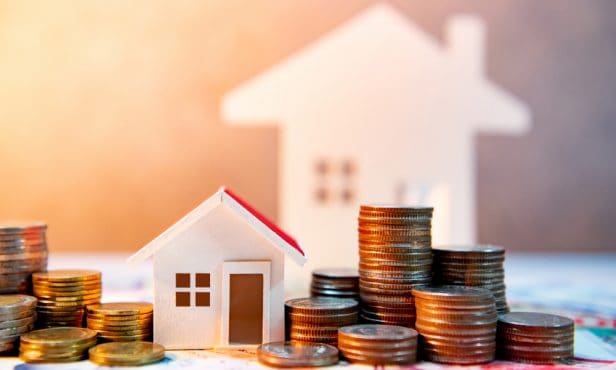Average house prices in the UK have risen by 13.2% in the year to June 2021, the highest annual growth rate the UK has seen since November 2004, according to the Office for National Statistics (ONS) House Price Index.
Average prices reached a record high of £266,000 in June 2021, £31,000 higher than the same time last year.
Average house prices increased over the year in England to £284,000 (13.3%), in Wales to £195,000 (16.7%), in Scotland to £174,000 (12.0%) and in Northern Ireland to £153,000 (9.0%).

Houzen: Instant valuations must evolve
London continued to be the region with the lowest annual growth (6.3%) for the seventh consecutive month.
London’s average house prices remain the most expensive of any region in the UK at an average of £510,000 in June 2021.
The North West was the region with the highest annual house price growth, with average prices increasing by 18.6% in the year to June 2021. This was up from 14.2% in May 2021.
The North East continued to have the lowest average house price at £150,000.
Mark Harris, chief executive of SPF Private Clients, said: “Once again the North West leads the charge, with price growth of 18.6% in the year to June, while London property prices lag with a 6.3% increase over the same period.
“This reinforces what we have been seeing for some time – the race for space means buyers’ money is going further outside the capital, inevitably pushing up prices.
“Borrowing rates remain incredibly low, with NatWest the latest lender to launch a sub-1% 5-year fix this week.
“Even though property prices continue to rise for now, it means that dream home is more affordable than it might otherwise have been.”
Jeremy Leaf, north London estate agent and a former RICS residential chairman, added: “This most comprehensive of all the housing market surveys confirms the rush to beat the beginning of the stamp duty taper, which we were seeing in our offices up to the end of June.
“However, the report is a little dated so it doesn’t show that the predicted price correction immediately afterwards failed to materialise.
“There are fewer but more serious enquiries now with most potential buyers displaying a steely determination to proceed, with existing transactions rarely renegotiated or failing to complete.”
Sam Mitchell, chief executive of Strike, said: “House prices continued on their upwards trajectory in June, with the latest ONS figures capturing the final frenzy amongst buyers and sellers before the stamp duty holiday scaled back.
“Despite the tax break now only being available to properties under £250,000, there are still other factors at play that will likely contribute to further house price increases in the months ahead.
“Historically low interest rates, an uplift in 95% mortgages and savings accumulated during lockdowns are all going to allow more people to enter the market.
“Let’s also not forget that the UK is still faced with a major supply and demand imbalance issue.
“A lack of new stock that fails to meet the demand we see today is enough on its own to push prices up.
“Particularly when we all appear to be looking for the same thing – a desire for more space, bigger gardens, and that now essential home office.”

